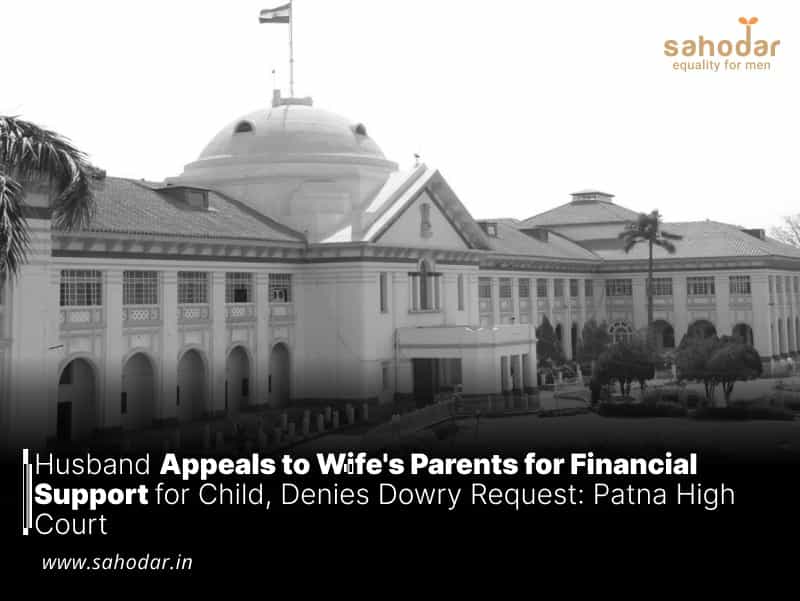The Court made the observation while setting aside a man’s conviction under Section 498A, IPC (cruelty) and Section 4 of the Dowry Prohibition Act 1961.
The recent ruling by the Patna High Court highlights that when a husband seeks financial assistance from his wife’s parents to support their newborn child, this action does not constitute dowry harassment.
Justice Bibek Chaudhuri emphasized this perspective while overturning a man’s conviction under Section 498A (pertaining to cruelty against married women) of the Indian Penal Code (IPC) and Section 4 of the Dowry Prohibition Act, 1961 (which addresses penalties for demanding dowry).
“For rearing and maintenance of a newly born baby, if the husband demands money from the paternal home of the wife, such demand does not come within the fold of the definition of ‘dowry,'” the Court held.
The couple in question tied the knot in 1994 and were blessed with three children.
According to the wife’s testimony, approximately three years after their daughter was born in 2001, the husband and his relatives allegedly requested ₹10,000 from her father to cover the expenses associated with caring for the girl. Additionally, the wife claimed she endured mistreatment due to her inability to meet this financial demand.
Initially, a trial court found the husband guilty of both dowry harassment and subjecting his wife to cruelty. This decision was later upheld by an appellate court, leading the husband to seek relief from the High Court through a revision petition.
Upon review, the High Court focused on determining whether requesting financial support for the welfare of the couple’s child qualifies as a dowry demand.
The Court scrutinized Section 2(i) of the Dowry Prohibition Act, which outlines the definition of dowry, emphasizing that a dowry request inherently involves soliciting money, assets, or other valuables as a condition for marriage.
“The essential element of dowry is payment or demand of money, property or valuable security given or agreed to be given as consideration of marriage,” the Court said.
The Court noted that the husband’s request for ₹10,000 in this instance was unrelated to marriage but rather intended for the upkeep of the couple’s daughter. Consequently, the Court concluded that such a plea does not align with the definition of dowry as outlined in the 1961 Act.
Furthermore, the Court remarked that the allegation of cruelty against the accused under Section 498A(b) of the IPC would also not stand, as this provision’s definition of cruelty is intertwined with the definition of dowry as per the 1961 Act, as determined by previous judgments.
While explanation (b) of Section 498A of the IPC does not explicitly mention “dowry”, it pertains to harassment aimed at compelling a woman or her relatives to meet an “unlawful demand for any property or valuable security.”
However, the Court clarified that legal precedents have established that such harassment falls within the purview of the definition of dowry under Section 2(i) of the Dowry Prohibition Act.
Moreover, the bench observed that the couple in question hailed from a community where the expenses associated with newborns are typically covered by the “Mayka” or the parental home of the married woman until the child reaches three to six months of age.
“There is also a ritual amongst the Hindus especially in villages to keep their daughter in their parental home during pregnancy till the birth of the child and the mother and child is generally sent to the matrimonial home after the child becomes three to six months old. During this period, entire expenditure is borne by the ‘Mayka (parental home) of the married lady’,” the Court observed.
The Court clarified that it wasn’t assessing the merit of such a cultural practice. It emphasized that moral judgments are beyond the Court’s purview.
Subsequently, the Court proceeded to overturn the man’s conviction in the current case and granted his revision petition.

